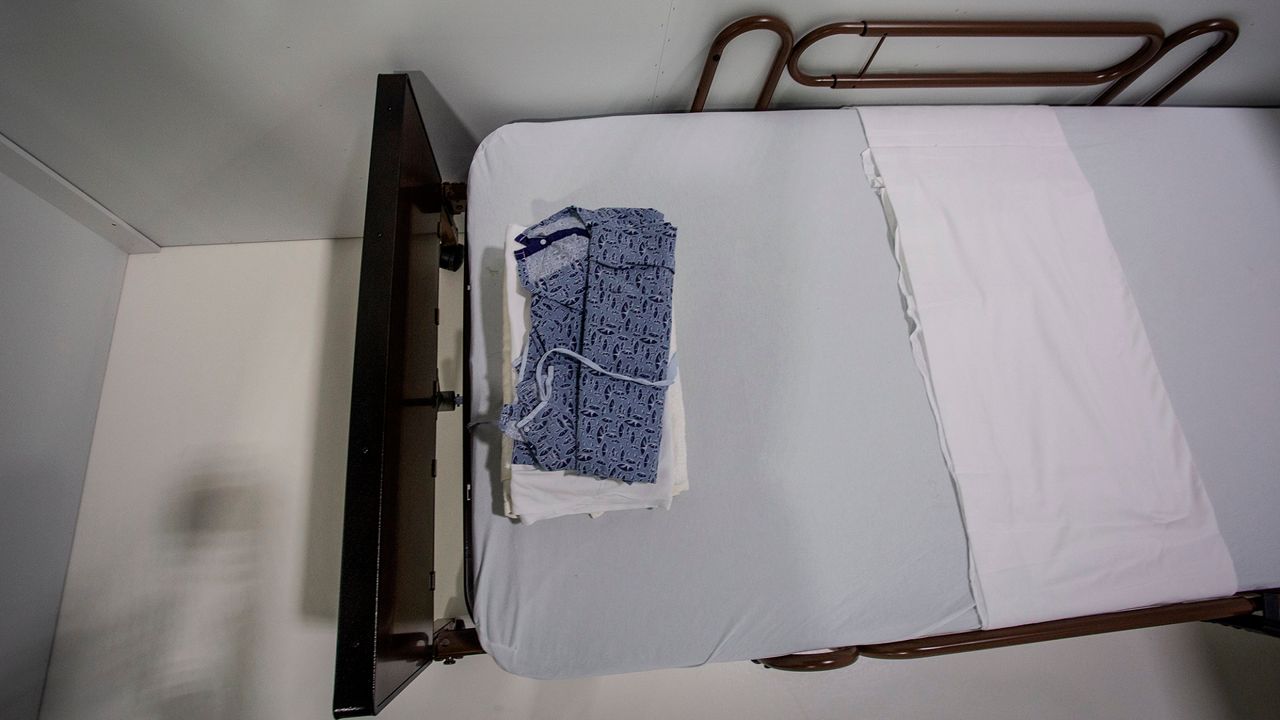More than 2,300 people charged with crimes — and assessed to have some form of mental illness — are waiting up to 500 days to be seen and evaluated in a Texas state psychiatric hospital.
People charged with crimes must be deemed mentally competent to stand trial. The work in the Texas criminal justice system to treat these people so they can stand trial — known as competency restoration — often means defendants will wait in county jails for months before their case can move forward.
For lesser offenses, the average wait is 231 days. For those that require a maximum-security bed — and that’s 885 people — the average wait time to get a psychiatric bed is 500 days.
“As long as we’ve got these waiting lists, it prevents closure for the victims and their families, not to mention the administration of justice,” Sen. John Whitmire, D-Houston, said in a Senate Finance hearing on Wednesday. “Just think what that does for the entire criminal justice system. The prosecution, the facts, the witnesses get lost, get stale.”
Most of the psychiatric beds used in the criminal justice system — known as forensic beds, rather than civil beds — are on the campuses of the state hospital system. A couple of other locations are leased. That means it often takes significant negotiation and travel time to find an available bed.
To start a case, a court must raise the issue of mental competence after a defendant is booked, said Steve Schalchlin, a deputy executive commissioner at the Health and Human Services Commission. Once a bed opens up, psychiatric treatment can begin. The outcome is one of three options: psychiatric services work and the defendant’s case is resumed; the person can be deemed incompetent and not likely to be competent soon, which means staying at the hospital; or the person can be determined to be not guilty by reason of insanity, which is extremely rare.
The entire population on the campuses of the state hospital system is about 1,500 patients. That means 65% of new admissions will be competency restoration cases.
Chair Sen. Joan Huffman, R-Houston, is a former criminal prosecutor and judge in Harris County.
“There has to be a more efficient way to do this. We’re just transporting people all over the state. It’s taking too long,” Huffman said. “In my experience, a lot of people who presented as incompetent were actually coming off some bad drugs, some type of drug psychosis.”
In some cases, the criminal justice system doesn’t even make sense, Huffman said. Sometimes the person needs to be diverted into psychiatric care immediately, just like many people who are arrested for a first offense have the option of choosing a diversion program.
Texas lawmakers have poured $1.3 billion into expanding Texas state psychiatric hospitals over the last 6 years; yet, still lack the right kind of facilities to provide mental health care for those charged with crimes. Sen. Charles Perry, R-Lubbock, said it would be worth the effort to re-assess buildings at both the state hospitals and state-supported living centers.
“I know for a fact that we have state-supported living center campuses that have buildings that are physically isolated and separate and apart on campus,” Perry said. “Where can security be changed — and set up those provisions — to provide intense therapy without building $2 billion in infrastructure.”
Texas does need large 300-bed hospitals, Perry said. It needs small pods of available space around the state that could serve as a relief valve for the forensic bed waiting list.
The Health and Human Services Commission has launched a number of pilots to cut the forensic bed wait list: Reduce the initial wait list by consulting and advising — and then re-assessing — people who qualify for forensic beds. Launch step-down pilot locations that will help smaller groups of state hospital residents transition to community living. And create a standardized train-the-trainer program on competency restoration so the pool of providers can be expanded.



